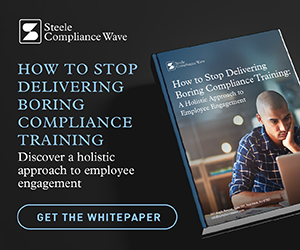 Three months ago I was on a United Airlines flight from Newark to London with a colleague named John. About an hour before landing at Heathrow, standing to retrieve something from the overhead compartment, John looked back about five rows and saw that another passenger was choking on a piece of bread. Not the coughing-and-smiling-and-saying-everything-is-fine kind of choking, but the completely-unable-to-breathe-or-speak kind of choking. Really choking. Before I was even aware that something was happening, John (an Eagle Scout and all around good guy) had moved into position, got behind the guy, and performed the Heimlich Maneuver with two thrusts of his fists to the choking man’s diaphragm. The piece of bread was expelled; the man’s life was saved.
Three months ago I was on a United Airlines flight from Newark to London with a colleague named John. About an hour before landing at Heathrow, standing to retrieve something from the overhead compartment, John looked back about five rows and saw that another passenger was choking on a piece of bread. Not the coughing-and-smiling-and-saying-everything-is-fine kind of choking, but the completely-unable-to-breathe-or-speak kind of choking. Really choking. Before I was even aware that something was happening, John (an Eagle Scout and all around good guy) had moved into position, got behind the guy, and performed the Heimlich Maneuver with two thrusts of his fists to the choking man’s diaphragm. The piece of bread was expelled; the man’s life was saved.
John returned to his seat next to me, remarkably calm. Some of the other travelers seated right around us congratulated him. For the next hour, he was praised for his heroics by passengers and crew alike. Several flight attendants approached over the course of a few minutes and offered him things like cocktails and ice cream, and asked whether there was anything else he might like. Several times he said no, he was fine, and did not want anything at all for his actions. He was just helping someone in need.
After a bit, a man with a clipboard came by and crouched by our seats. He identified himself as the flight’s Purser. [I never knew that flights had pursers. In fact I don’t really even know what a purser is (though I’ve known for a very long time that Gopher was the Purser on the Love Boat…).] He was there to take a report. He wanted to know what exactly John had done, whether he had special training, etc. He thanked John with great sincerity. “This would have been a very different flight for everyone onboard if you had not saved that passenger’s life,” he said.
Now let me make something clear: I’ve known John for a long time and I know that he was being completely honest when he said that he expected nothing in return for his quick actions that had saved this stranger’s life. Not only was he looking for absolutely no reward, but the thought of a reward for such a thing would not have occurred to him. John just is not like that. However, the Purser then communicated two key things to John: First he asked “When is your return flight?” John said we were flying back to Newark next Wednesday. The Purser said, “We are going to take care of you on that flight.” Then he asked for John’s home address. “United Airlines will want to send you a letter of thanks,” he said.
When Wednesday came he and I returned to Heathrow, having completed our business in London. I figured we’d be sitting separately on the way back to Newark as he would almost certainly be upgraded to Business or First Class; a small thing for the airline to do, given the massive headache he had saved them. So what did United Airlines actually do to fulfill the Purser’s promise that they would “take care of” him on that flight? Absolutely nothing. No mention of the incident from the earlier flight, no offer of a better seat, nothing. I felt disappointed for him (and sort of for myself, because I thought maybe I could somehow get upgraded on his coattails…). John said to me, “I really didn’t expect any sort of reward, but I’m kind of surprised that they made no mention of it at all.”
Naturally, before writing this piece, I checked in with John. “Hey, did you ever get that thank you letter from United Airlines?” I asked. “Did they give you lifetime Platinum MileagePlus Membership? Voucher for a free flight for you and your wife to somewhere nice? Two tickets for a one-time visit to the United Club? One of those “United Dollars” (or whatever they’re called) for a free onboard drink?” “Nope,” he said. “Nothing. Can you believe it?? I saved a guy’s life on that flight and not one word from the airline! Can you imagine if that guy had died on the flight??”
John had not expected anything in return for his heroics that day, until the company (in the form of their Purser) caused him to expect something. If the Purser had not made those two key promises, John would not have come to expect either of them.
The same thing is true for companies in the way they communicate compliance. You probably already know that I am a huge advocate for communicating compliance through every channel available and using as many communication modes as you reasonably can. However, the one thing that is worse than not communicating compliance, is communicating promises which you have either no intention of following through on or lack the resources to follow through on.
Some common examples of this that I have seen frequently are these:
- The promulgation of policies that the company will not enforce. There is nothing more demoralizing for employees who are following a policy than to see a coworker flaunting his or her violation of the policy with no consequences. Better to have fewer policies that are consistently enforced, rather than pile up a bunch of toothless rules.
- Failure to establish a strong tone-at-the-middle, such that employees hear key messages from the CEO, the Code of Conduct, annual training, etc., but then are told (either explicitly or implicitly) by their managers that compliance and ethics don’t matter.
- Communicating the strong requirement to, for example, perform due diligence on all third party agents, but failing to follow up with a clear process or resources for doing so.
- Creating ambiguous expectations among those who report misconduct. For example, anonymous reporting may be available vis-à-vis Sarbanes, but European Privacy Laws generally prohibit anonymous reporting. Employees should know before they call your hotline what can be reported anonymously and where such reporting can take place. Otherwise, they may well feel that a promise has been broken.
- Failure to set expectations once reporting has occurred. Giving callers a case number that allows them to check in on their report preserves trust, but if there is no mechanism for those who report misconduct to learn about the progress of investigations, that should be communicated clearly at the time of the report. The worst thing you can do is leave employees with the impression that nothing at all happens when violations are reported. For years, this perception has been cited as the number one reason that employees fail to report misconduct they have observed.
So again, communicate your compliance message through as many channels and using as many communications modes as you can. (Remember, you are marketing compliance! http://linkd.in/1kMdE7u ) But don’t communicate expectations that you can’t follow through on. John didn’t expect any reward from United Airlines until they told him to expect it, and then he felt disappointed by them – a result much worse than if they hadn’t said anything at all. Your employees will feel the same way unless they believe that the promises of your ethics and compliance program are being kept.
COMPLIANCE COMMUNICATIONS TIP: Communicate compliance with as much clarity and frequency as you can, but above all else be consistent. If you say that a behavior will not be tolerated, be sure it is not tolerated. It would be better to under-communicate than to communicate promises you cannot keep. (Beyond compliance, this is true in life generally, don’t you think?)




